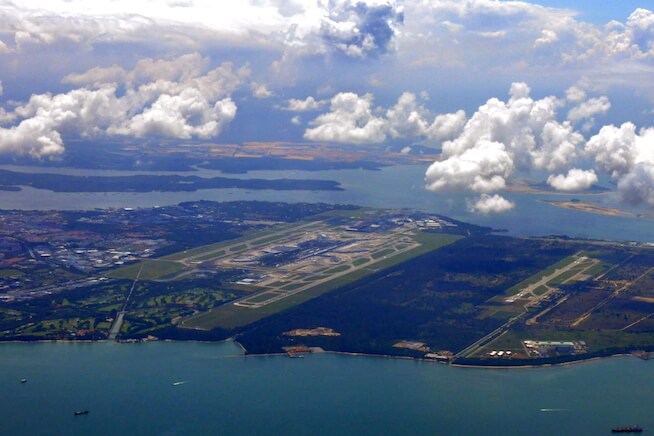Increased capacity prompts SATS opening of Catering Centre 1

Increased air travel at Changi Airport, above, has prompted SATS to re-open its Catering Centre 1
SATS Ltd. (SATS) yesterday began preparing inflight meals from its Inflight Catering Centre 1 (ICC1) in Singapore for the first time in more than two years as travel demand rebounds.
“Through automation and more efficient space utilization, SATS is ramping up annual aviation production capacity in Singapore to achieve 53 million inflight meals by 2025,” said a release from the company. “With a 20 percent increase in production capacity, SATS is catering for demand growth to cement Changi’s air hub position not only during the year-end travel peak but also through the coming decade.”
The resumption of ICC1 operations will allow SATS’ to meet the increased demand stemming from an acceleration in travel recovery, a development that is much anticipated by the aviation industry, businesses, and customers alike. Inflight meals served as well as flights handled by SATS crossed 50 percent of pre-pandemic levels in June 2022. By the end of the year, the volume of flights going through Singapore Changi Airport is expected to reach 80 percent of pre-pandemic volume. SATS will continue to invest in its Changi operations, further reinforcing its aviation catering, ground-handling, and air cargo capabilities, providing best-in-class support to customers.
ICC1 is one of two inflight catering facilities that SATS operates in Singapore, comprising a total of more than 30 specialized kitchens of different cuisines to serve more than 80 percent of flights at both Changi Airport and Seletar Airport. Created by SATS nutritionists, food technologists and chefs, the menus are characterized by low levels of wastage, long shelf life, consistency in taste and quality, and high levels of food safety.
Stanley Goh, Chief Executive Officer of Food Solutions, SATS, said, “Food is the mainstay of many cultures even while 30,000 feet in the air. Working collaboratively, we do our best to provide customers with tasty, quality food, while driving operational efficiency and sustainability across the business. To achieve greater agility and business resilience, scale is key. Aiming for robust and resilient growth that goes beyond pre-pandemic levels, we have expanded large-scale production capabilities and integrated the supply chain across our geographical network as part of our tiered kitchen strategy.”
For its Singapore inflight catering operations SATS doubled down on automation, reorganized kitchen, and assembly workflows, and conducted multi-skilling programs for staff.
New automated machinery in ICC1 includes a large-scale sous vide immersion circulator that dishes out perfectly cooked proteins as well as a multistorey material handling system to sort and distribute washed aircraft food trolleys, utensils, and cutlery with zero human intervention. The company continues to explore the use of technology and machines to further increase productivity and lower the amount of energy, materials and capital required.
In addition, conveyor belts constantly feed food freshly prepared by SATS’ team of international chefs into a spiral blast chiller that maintains freshness after cooking. As and when required, the computerised multi-level storage system sends food directly to the food dishing lines, enabling just-in-time delivery and reducing manual load on workers.
As part of its sustainability goals, SATS will be expanding the use of existing rooftop solar panels to heat up water for cooking, thereby reducing the company’s reliance on gas. SATS also uses an automated food waste tracking system that enables the company to gain greater visibility of waste output, identify ways to improve production efficiencies and optimize material planning.

